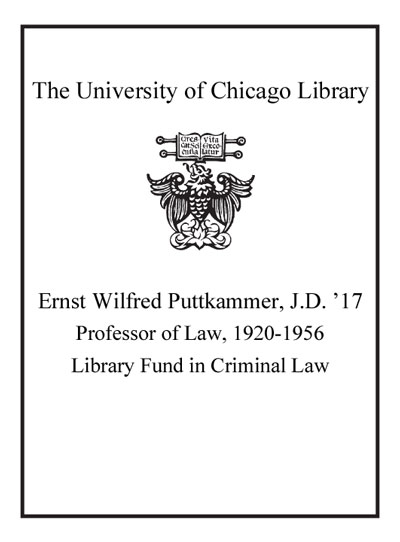Blackstone's guide to the Proceeds of Crime Act 2002 /
Saved in:
| Author / Creator: | Rees, Edward. |
|---|---|
| Imprint: | Oxford ; New York : Oxford University Press, 2003. |
| Description: | xxv, 340 p. ; 23 cm. |
| Language: | English |
| Subject: | |
| Format: | Print Book |
| URL for this record: | http://pi.lib.uchicago.edu/1001/cat/bib/5017181 |
| Summary: | The Proceeds of Crime Act 2002 is perhaps the most significant development in the criminal law since incorporation of the European Convention on Human Rights in 1998 and has far reaching consequences in criminal procedure. It is designed to create a culture in which the confiscation of criminal assets is seen as an essential step in the investigation of crime, the processing of convicted defendants, and the removal of assets from others identified as having benefited from criminal conduct. The new legislation contains a number of radical changes:· The Act establishes a powerful Assets Recovery Agency with extensive investigative powers. The Agency will be able to pursue criminal assets through confiscation of the assets of convicted criminals or recovery of assets representing the proceeds of crime through civil actions. Importantly, civil recovery will permit the recovery of criminal assets where no conviction has been achieved. In addition, persons suspected of having benefited from crime will be liable to have their assets taxed by the Revenue Authorities.· The Act amalgamates and strengthens existing powers available to restrain property whilst criminal proceedings are pending, and to seek an order for confiscation following conviction in both drugs cases and non-drugs offences. Existing restraint jurisdiction is transferred from the High Court to the Crown Court to create a "one-stop shop" for confiscation of crime proceeds.· The Act also reforms the definition of money-laundering and replaces the existing separate drug and non-drug offences with a single consolidated set of charges.· Significantly, the Act anticipates the implementation of the Second European Community Directive on Money Laundering which will bring all lawyers within the regulated sector and impose stringent new duties upon them, with penal sanctions for breaching reporting regulations and "tipping off" clients. This book provides a detailed commentary on the Act, and is designed to be a readable and practical guide to its complex provisions. The impact of the Human Rights Act 1998 on the operation of the new provisions is considered at each stage in the text. It is an essential purchase for every practising lawyer, both civil and criminal. About the Authors: Edward Rees QC and Andrew Hall QC are both specialist criminal practitioners with substantial experience in fraud and white collar crime. Both have lectured, broadcast and written extensively on criminal justice issues, and have recently undertaken extensive training of the Bar on the new Act for the Criminal Bar Association. |
|---|---|
| Item Description: | "Includes a copy of the Act"--Cover. Includes index. |
| Physical Description: | xxv, 340 p. ; 23 cm. |
| ISBN: | 0199254540 |

